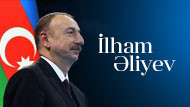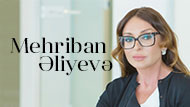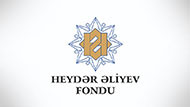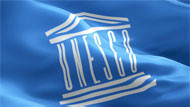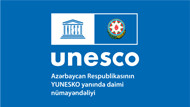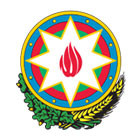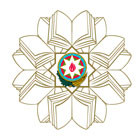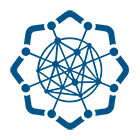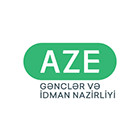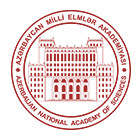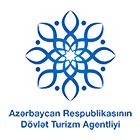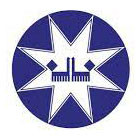A session on the role of UNESCO National Commissions in Promoting Intercultural Dialogue was held within the framework of the Forum
2019-05-07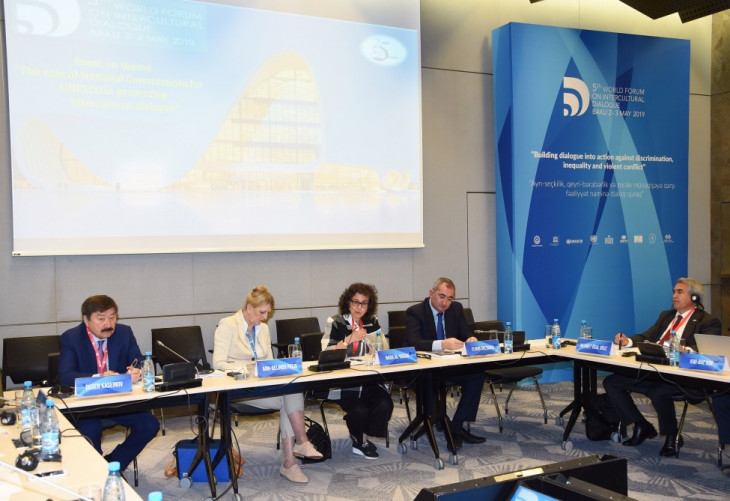
The next session on "The role of UNESCO National Commissions in promoting intercultural dialogue" was held on May 3, within the Fifth World Forum on Intercultural Dialogue.
Speaking at the opening of the session, Elnur Sultanov, Ambassador-at-Large of the Ministry of Foreign Affairs of the Republic of Azerbaijan, Secretary General of the National Commission of the Republic of Azerbaijan for UNESCO, spoke about the growing influence of our country in the world, its international relations, especially its position at international organizations. He noted that Azerbaijan has been cooperating with UNESCO for 27 years. Particular contributions of Mehriban Aliyeva, the First Vice President of the Republic of Azerbaijan, President of the Heydar Aliyev Foundation, UNESCO Goodwill Ambassador, should be emphasized in further development and expansion of this cooperation.
The Secretary-General spoke about the history and activities of the National Commission of the Republic of Azerbaijan for UNESCO. He noted that the Commission was established in 1994 by the decree of President Heydar Aliyev. With that decree, the National Commission has begun to operate under the Ministry of Foreign Affairs. This year marks the 25th anniversary of the establishment of the National Commission. By the relevant Order of President Ilham Aliyev signed on September 15, 2005, the National Commission of the Republic of Azerbaijan for UNESCO has continued its activity as the National Commission under the President of the Republic of Azerbaijan. By the Decree of the Head of State dated 29 August 2018, the new composition of the National Commission has been approved. At present, the National Commission has 17 members. At the meetings of the National Commission, views on current activities and future plans are being exchanged.
E. Sultanov said that UNESCO is the only organization in the world that has its own National Committees. This is a great family network. National Commissions play a special role in organizing various regional and global events. The National Commission of Azerbaijan also actively participates in UNESCO projects in this direction.
The Secretary-General also informed about the multicultural, tolerant environment in Azerbaijan and noted that representatives of different religions, nationalities lived in peace in our country and stressed that this is the basis for establishing an intercultural dialogue.
Nada Al-Nashif, Assistant UNESCO Director-General for Social and Human Sciences, said that she made her first visit to Baku in 1996 and since then the development in Azerbaijan has shown itself not only in the fields of economy and infrastructure but also in the field of culture.
Nada Al-Nashif praised the activities of the National Commission of Azerbaijan for UNESCO. She noted that the National Commissions play the role of coordinating and regional executive. UNESCO has responded to many challenges in the world as a result of the joint efforts of the National Commissions.
Assistant Director-General noted the role of Baku Process, which started 11 years ago by the initiative of President Ilham Aliyev, in the development of intercultural dialogue.
Ann-Belinda Preis, Director of UNESCO's Intercultural Dialogue Section, moderator of the session, said that numerous professionals and experts in the field of interreligious and intercultural dialogue invited to this year's forum by the Azerbaijani government were highly appreciated.
Ann-Belinda Preis said that the UN and UNESCO set goals for the elimination of violence in the world, resolving conflicts on the military, ethnic grounds, and other issues.
Member of the Turkish National Commission of UNESCO Mehmet Ocal Oguz said that the main activity of UNESCO is to increase the geographical culture among the people whose activity is not to make war but work for peace and effective activity.
TURKSOY Secretary General Dusen Kasseinov emphasized the importance of expanding cooperation between the UNESCO national committees and the Permanent Representatives of the organization to the Turkic-speaking countries. He underlined the significance of this forum in the achievement of peace and equality, mutual trust, understanding in the world.
Secretary-General of the Uzbek National Commission Alisher Ikramov emphasized the role of youth in the development of intercultural dialogue. He said that youth mobilization in these works is of great importance.
A representative of the Korean National Commission Kvi-Bae Kim informed about the activities and activities of the organization he represents. He spoke about the contributions of UNESCO National Committees to the development of intercultural dialogue.
Academician Shahin Mustafayev, deputy director of the Institute of Oriental Studies of ANAS, said that science can not develop in a closed environment, and its progress needs to be integrated into the international scientific environment. The Academician spoke about the importance of projects contributing to the development of intercultural dialogue.
The session continued with discussions.


